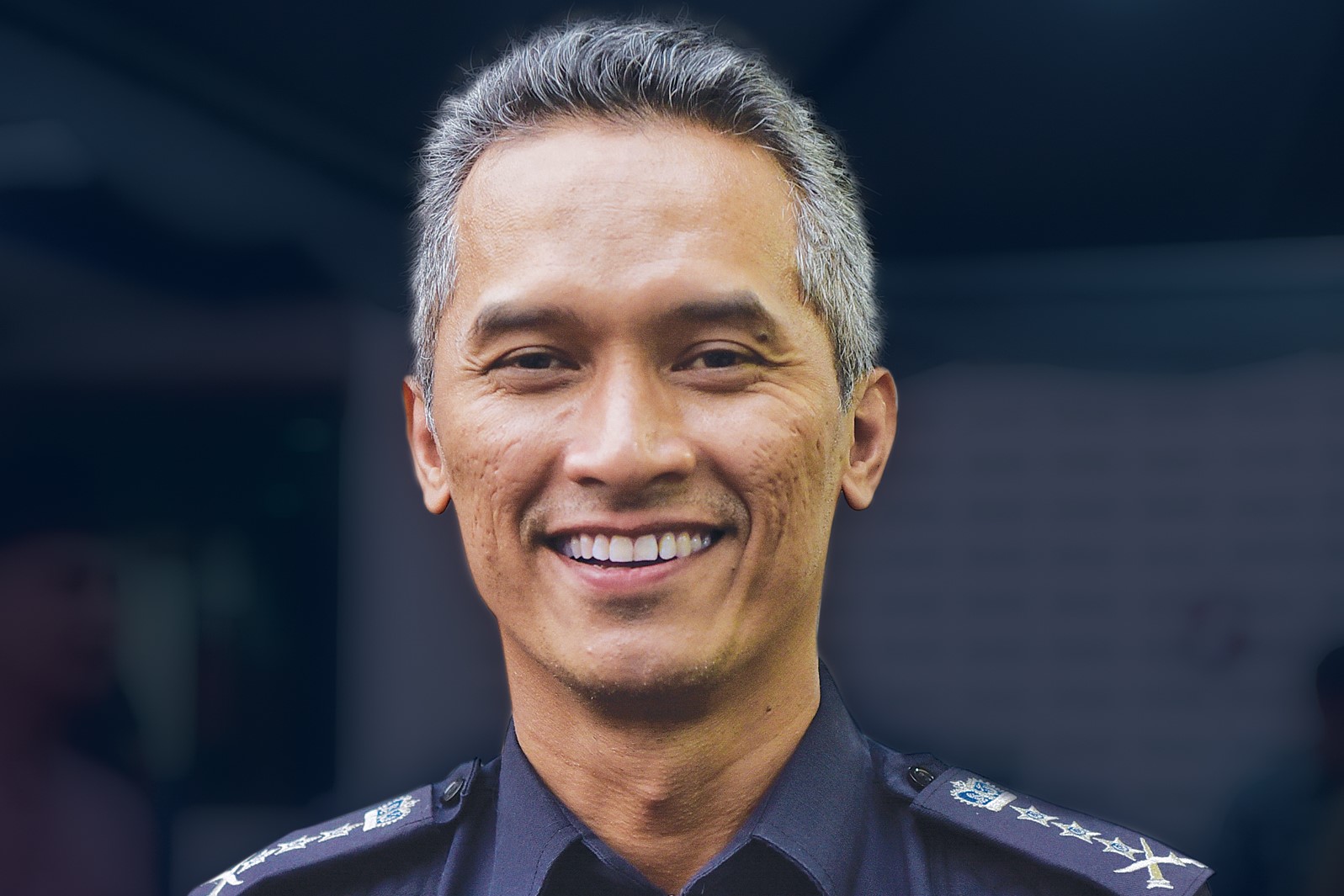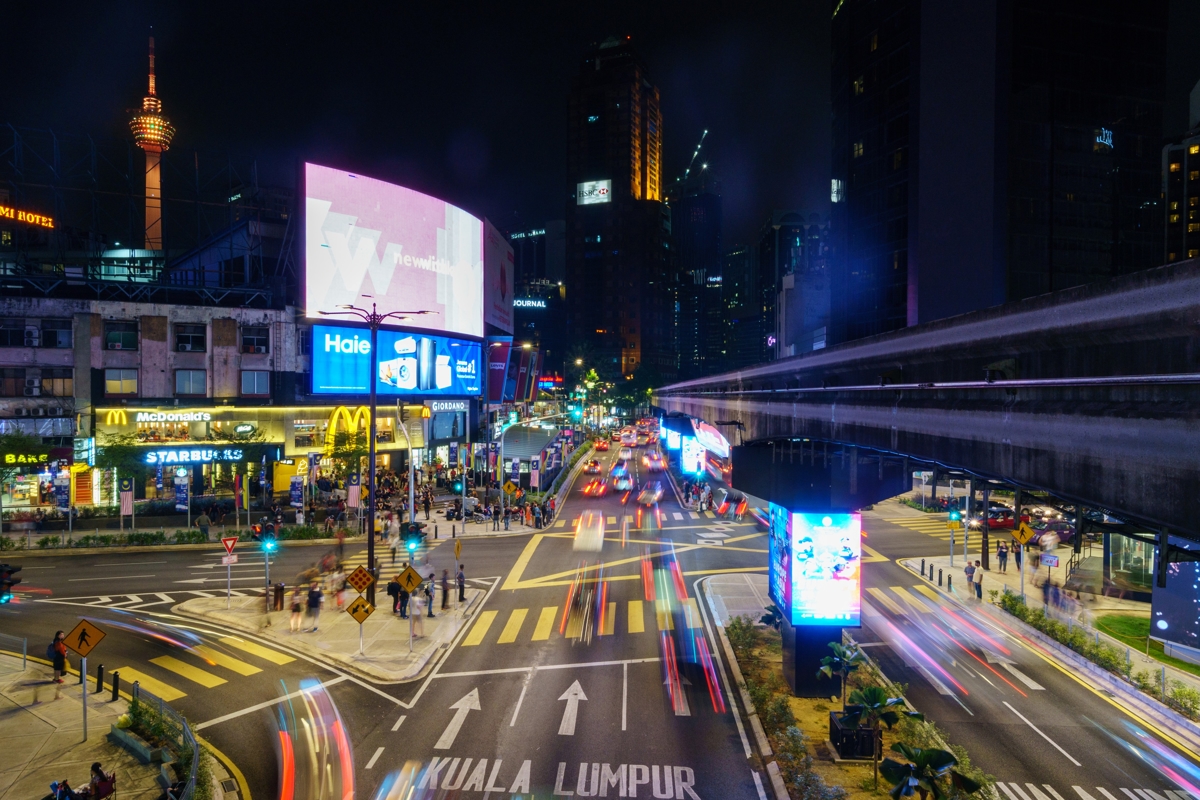CPO Shuhaily Zain: To Lead Is to Train (Part Two)
By Dato’ Dr. Ooi Kee Beng
PENANG PROFILE
IN FEBRUARY 2023, Penang Monthly published the first part of an interview with Dato’ Mohd Shuhaily Mohd Zain, the Chief Police Officer of Penang, which was titled “Beyond Mere Enforcement of the Law”. This month, we conclude the exciting discussion he had with Ooi Kee Beng.
Ooi Kee Beng: As everyone would agree, socio-economic conditions are directly connected to matters of security. After the multiple crises we have had, do you think there is greater consciousness in Malaysia now for more sociological approaches to understanding the socio-economic diversity of the country, and how that relates to social stability and criminality?
Mohd Shuhaily Mohd Zain: There is a book I recently read called The Meritocracy Trap, by Daniel Markovits, and I have also been reading a few books about global inequalities and how these result from the free market. Let me try to respond from that.
Some will make it big in a free market society, and they will, over time, become part of the richest one percent in society. During the 22 years under Tun Dr. Mahathir (1981-2003), there was a push to build a big middle-class society – I assume to create an active and vibrant economy that would eventually bring social, political and economic stability. But there was always the problem of mismanagement and corruption. Hence, the 30% Malay equity goal that the New Economic Policy (NEP) espoused simply saw a lot of wealth being misappropriated to the top, and not distributed to the bottom. There was no equal distribution – far from it; so, in that sense, the NEP did not achieve what it intended to achieve. That’s my personal view.
As a person in charge of security, I think that the basic concerns for most people are bread and butter issues. But the economic conditions in society are constantly changing. These lead to tensions, challenging the processes of social integration and cohesion.
Now, people talk about how the school systems separate us. But if you look at society at large, if you look at our residential areas, you see that we are separated quite thoroughly—socially, economically and politically.
This is the reality. So, if too many cultural and economic changes come from too many directions all at once, the moral fabric of our society may tear. Where security is concerned, we must realise that many Malaysians are still conservative, and love their old norms.
Societies do change over time, people do mature. But some things take time, and cannot be rushed.
OKB: I’m sure a person like you, doing police work, will be very, very sensitive to how certain changes can quickly and adversely affect social order or national security.
SZ: Well, there’s no one solution that fits all, in space or in time. In my organisation, I handle about 6,000 people, the same size as in my earlier posting. I try to be fair, but whether someone feels he is being fairly treated or not is very subjective.
Let’s take something like promotions as an example. Once a policeman is promoted, he moves to another unit or posting. By right, the order shifts and everyone is affected, and may have to move. Once, there was one officer who came to plead against being moved to another division after being promoted. He had a disabled child and a wife who had had a stroke, and he relied on his overtime pay to support them and on the convenience of being close to them. He even requested not to be promoted.
Trying to be a good boss, I let him stay. The news spread, and soon, a few more came asking not to be moved. Well, since they did not have a disabled child or a wife who was ill, I stood by the decision for them to proceed with the movement.
Fairness is subjective. That’s one of the big challenges I am facing right now.
You know, Dato’, the day someone decides to be a rank-and-file policeman, they already belong to the B40 group. They will earn RM1,800 or RM2,000 a month, way below the RM3,500 that is the ceiling below which you are classified as being in the B40 (if I’m not mistaken).
Such a situation opens up for certain tendencies...

OKB: So, you would ask for higher salaries for your men and women?
SZ: If not higher salaries, then maybe allowances. You see, once you raise salaries, that becomes a big burden on the government because that affects the whole public service. Maybe the housing rules for them need to be changed, involving bank loans, loss of housing allowances, rules about where they are allowed to live if they do own a house, et cetera. These are among the things I plan to discuss with the new Home Affairs Minister.
OKB: What do you think of the Independent Police Complaints and Misconduct Commission (IPCMC) from 2004 being replaced by the Independent Police Conduct Commission (IPCC) Bill in 2021?
SZ: I think Pak Lah (Former Prime Minister Tun Abdullah Badawi, 2003-2009) wanted to provide the police with some of the things I mentioned. If you embrace the spirit of the IPCMC, it would, first of all, have provided the police with all the basic necessities; this was more important and essential than the focus on disciplinary actions. Along the way, I think people looked too much at the negative part.
To me, Pak Lah was a leader with ideas, but he was not translated properly. Take the agriculture policy that he wanted to implement. We have been so engrossed in industrialisation that we think of anything else as backwards. Looking back now, we see it was a mistake to ignore all that. Agriculture is an essential activity. After Covid-19, we are reminded of the importance of food security, if nothing else.
OKB: There are many countries that decided to invest heavily in agriculture and have done so successfully… The Netherlands, Denmark, Taiwan…
SZ: Thailand as well. I think this is where Malaysia is in a bind. Our transition from agriculture to industrialisation was not detailed out and its long-term implications properly studied. As a result, many, especially Malays, migrated to cities, thinking that they would have a better life there, only to find that they have to work twice as hard, and live with a lot of uncertainties.
What I noticed during the pandemic was many families losing their homes—being retrenched, you cannot pay your rent, you lose your car and you end up wanting to return to your home village. But you had already sold your land, so... you have a problem. This remains something that the government needs to look into.
OKB: Can we talk a bit about drug abuse? This is on the rise, among very young kids as well.
SZ: International findings tell us that for every person we arrest, there are five to eight others who are still free. No country in this world has succeeded in fighting drugs.
You can look upon addicts as criminals, or you can see them as patients. The fact is that the war on drugs is evolving; nowadays, the world has begun legalising drugs.
Therefore, if, in Malaysia, we go against the trend too much, we get accused of breaching human rights, and there will be Western sanctions and so on. It’s not an easy situation.
OKB: Drugs is very much an internationally defined problem, isn’t it?
SZ: I always think of foreign policy this way… Your internal strength will eventually determine your foreign policy. In the 1990s, under Mahathir, we were strong and stable, our voice was valued well in the OIC, the South, the Middle East, Asia and within ASEAN. Right now, we are quite absent at the international level and there are consequences.
Personally though, I think Prime Minister Anwar Ibrahim has the required international stature to make a difference and to turn things around. Domestically, much still needs to be done, especially on the economic front.
A nation must survive. So, in Malaysia, we should ask ourselves: How are we to survive? We see that Indonesia has surpassed us in many ways. They have an abundance in resources compared to us. Same with Thailand. Their markets are huge. So, if we keep on going the way we have been going politically, we will lose out.
OKB: Can you tell our readers how the police department is organised, generally?
SZ: We have 10 departments, speaking from my experience in Penang. The four core businesses are always the CID, Narcotics, Commercial Crime, and last but not least, Public Order. I try to make these work together, and not in silos.
Just to let you know, we had a retreat in late 2021 for our officers to actually understand the crime demographics in Penang. We came to the conclusion that almost 80% of petty crimes were committed by addicts. As high as 80%! So, since last year, our Narcotics Department has gone out quite aggressively on addicts because we want to manifest the correlation between crime rate and drug abuse. And apparently, that has shown itself very clearly.
Nevertheless, this comes with some challenges as well. Obviously, this will double the work of prosecutors and cram prisons as a result of the raised number of convictions. Thus, not only do we see a correlation, but also the impact it has on our justice system at large.
People don’t understand the system in detail. More often than not we are blamed for not arresting addicts, who, to the public, are socially disruptive. But we are not the sole agency dealing with drug-related problems and our freedom to act must also consider other agencies’ capabilities and resources.
The police alone cannot solve all social issues. We need to start working together with other departments as well.
OKB: Since the changes in government in recent years, and especially with the forming of the new unity government, are you hopeful for new changes that will help police work, and so on?
SZ: We are in uncertain times politically, yes; but I think Malaysians – the voters – are getting more mature.
Those wishing to serve the country must have a sense of sacrifice. That is something I have learned to be necessary. Throughout my career, I have always tried to say my piece. Somehow or rather, be it luck or not, the bosses I have had have been very open-minded, dedicated and professional.
I worked with bosses from different races—Indians, Chinese and Malays. They have shown themselves to be wise and experienced. They are the ones who had gone through the difficult days of building our beloved nation. And I have tried hard to learn from them, and tap as much as I can from their leaderships.
What is lacking today are indeed leaders who are also trainers, who can see the need for strong ethics and professionalism in the Force.
Lastly, let me say this. In policing, you must try to understand the people you police. Policing a multicultural society is not something the West, or schools, or books can teach you. You have to go down to the ground, be sensitive, be curious, be understanding—you must learn, see, touch, feel and smell.
I think that’s why I have loved being a cop and still do. Every day, I learn something new.
Dato’ Dr. Ooi Kee Beng

is the Executive Director of Penang Institute. His recent books include The Eurasian Core and its Edges: Dialogues with Wang Gungwu on the History of the World (ISEAS 2016). Homepage: wikibeng.com



